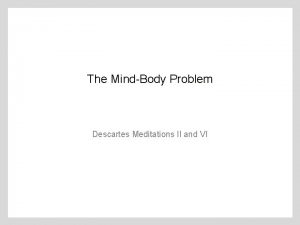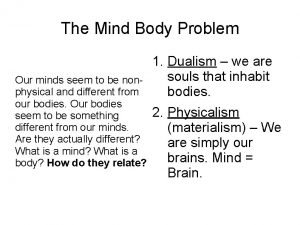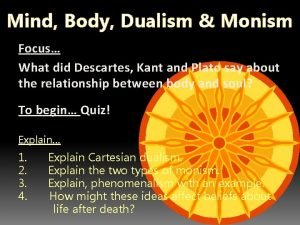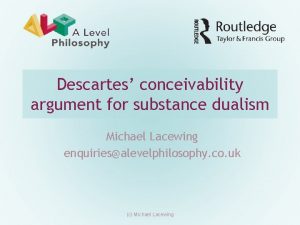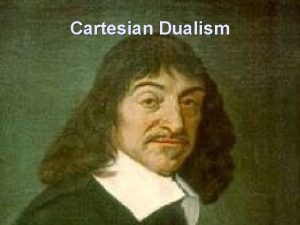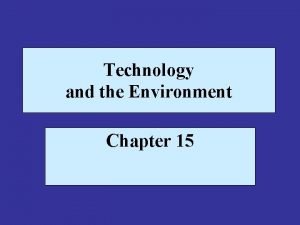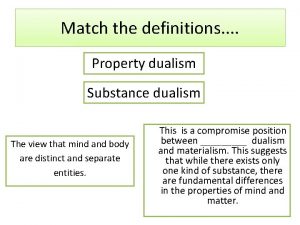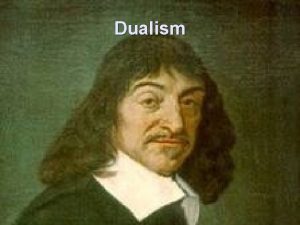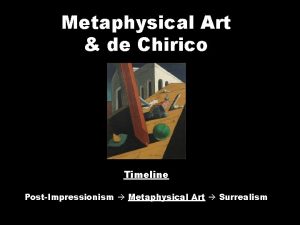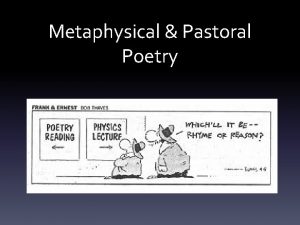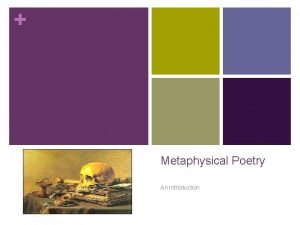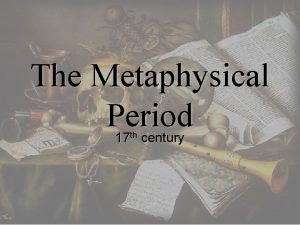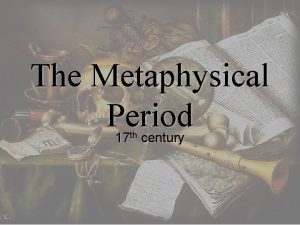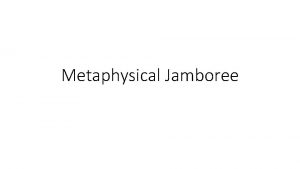Chapter 9 Dualism Metaphysical Dualism A metaphysical dualist










- Slides: 10

Chapter 9 Dualism

Metaphysical Dualism • A metaphysical dualist believes that reality is made of up of two kinds of things: – That cannot be fully reduced to one another • Mind–body dualism is theory that a human person is a composite of: – An immaterial mind a material body, each of which can exist without the other © 2013 Pearson Education, Inc. All rights reserved.

Plato: The Immortality of the Soul • What kind of thing is liable to suffer dispersion – And for what kind of thing have we to fear dispersion? • What always remains in the same state and unchanging is: – Most likely to be uncompounded © 2013 Pearson Education, Inc. All rights reserved.

Plato: The Immortality of the Soul • And what is always changing and never the same is most likely to be compounded • Do you not think that the divine naturally rules and has authority – And that the mortal naturally is ruled and is a slave? © 2013 Pearson Education, Inc. All rights reserved.

Degrees of Reality • Plato’s belief that there are degrees of reality – Physical objects; Forms • For each of the degrees of reality, and its corresponding degree of knowledge: – Plato used a specific term © 2013 Pearson Education, Inc. All rights reserved.

Degrees of Reality • Plato (428/7 -348/7 b. c. e. ) born in Athens, Plato became a student of Socrates – Mentioned in the Apology as being present at his trial • Plato traveled outside of Greece but returned eventually to Athens: – Where he founded the Academy: 388/7 b. c. e. © 2013 Pearson Education, Inc. All rights reserved.

Plato: The Divided Line • The visible and the intelligible • A line divided into two unequal parts, – And then divide the two parts again in the same ratio to represent: • The visible and intelligible orders • The capacity for knowledge is innate in each man’s mind © 2013 Pearson Education, Inc. All rights reserved.

Knowledge Is Knowledge of Forms • What is justice? • Unless we know what justice is: – How will we ever be able to manifest it in human affairs? – The same thing holds for such Ideas as excellence or virtue, piety, and so on © 2013 Pearson Education, Inc. All rights reserved.

The Allegory of the Cave • We get Plato’s view of the difference between those who claim knowledge: – But only know the particular things of sense experience – And those whose knowledge is of universal principles • Several levels of meaning © 2013 Pearson Education, Inc. All rights reserved.

The Form of the Good • The Good looms large in Plato’s theory of knowledge: – But he never really tells us what the Good is – The closest he comes to a definition is a simile: • The Good is to knowing as the sun is to seeing © 2013 Pearson Education, Inc. All rights reserved.
 Is nagel a dualist
Is nagel a dualist Descartes meditations 2
Descartes meditations 2 What is the “causal interaction problem” for dualism?
What is the “causal interaction problem” for dualism? Substance dualism
Substance dualism Difference between monism and dualism in international law
Difference between monism and dualism in international law Cartesian mind body dualism
Cartesian mind body dualism Mind body dualism descartes
Mind body dualism descartes Cartesian mind body dualism
Cartesian mind body dualism Technological dualism
Technological dualism Substance dualism
Substance dualism Substance dualism
Substance dualism

